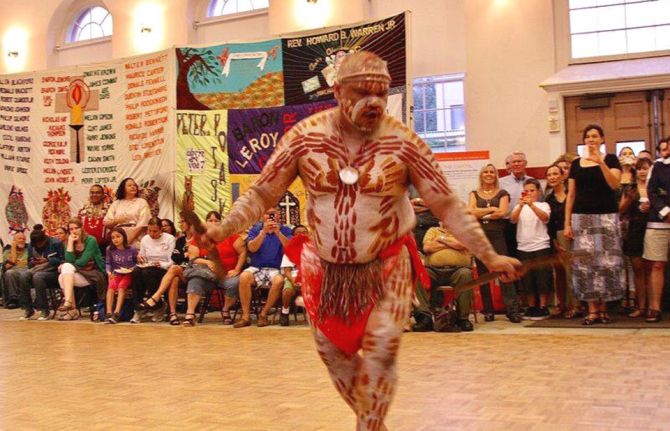

Update
Speaking in a united voice: new indigenous HIV group launched
08 May 2017
08 May 2017 08 May 2017Indigenous groups from all over the world have joined together to speak in a united voice on HIV.
The Canadian Aboriginal AIDS Network, the International Indigenous Working Group on HIV and AIDS and the Māori, Indigenous & South Pacific HIV & AIDS Foundation have together created a new nongovernmental organization, the International Indigenous HIV & AIDS Community (IIHAC).
“I am here to tell you that indigenous people have been left behind and, unless things change, we will continue to be left behind,” said Marama Mullen, Chair of the IIHAC, at its launch in New York, United States of America, on 24 April.
At the launch, IIHAC released a 10-point statement to serve as an action plan for indigenous communities all over the world. The statement urges national authorities to gather epidemiological data and undertake more research on issues such as stigma to discrimination and racism, and to ensure access to health, housing and educational and economic opportunities for indigenous people. IIHAC’s aim is to work together, pool resources and build resilient indigenous communities.
The statement also urges indigenous leaders to make access to HIV treatment a priority and to adapt the prevention movement with culturally relevant and community-driven strategies.
“Despite all the advances in HIV, despite all the goals and strategies, despite all the good will, this is the only way for us to be a part of the Fast-Track response,” Trevor Stratton, a board member of IIHAC, said. He added, “It is key that we pay particular attention to indigenous people living with HIV.”
Many indigenous communities have been affected by higher levels of substance abuse, poorer health and a higher HIV burden.
The group asked that the United Nations Permanent Forum on Indigenous Issues address AIDS as a humanitarian issue and HIV as a threat to indigenous peoples.
UNAIDS Deputy Executive Director Luiz Loures welcomed the creation of IIHAC, saying, “This is a crisis in indigenous communities that we cannot ignore.”
UNAIDS is committed to leaving no one behind in the HIV response towards ending the AIDS epidemic as a public health threat by 2030 as part of the Sustainable Development Goals.



